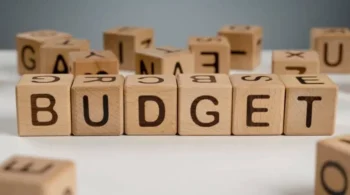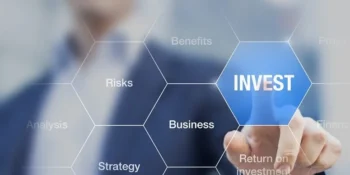Introduction
We live in a world where our financial decisions can have profound implications on our quality of life, our ability to fund our dreams, and even our mental health. It’s all too easy to fall into a pitfall of bad financial habits or to become a victim of financial scams and misinformation. Learn ways to become financially literate and effectively manage, save, and invest money with these tips.
Emphasis on the importance of financial literacy
Financial literacy is about understanding how money works in the world: how someone manages to earn or make it, how he/she manages it, how he/she invests it, and how that person donates it to help others. It empowers you with the knowledge to make informed decisions about managing your personal finances with insight.
When you’re financially literate, you’re better equipped to set financial goals and make concrete steps to meet them. You’ll understand how to eliminate debts, how to ensure you won’t run out of money, and how to navigate the myriad of financial risks and challenges that life invariably presents.
Here are a few key points regarding the importance of financial literacy:
- It guides better money management, leading to financial wellness and independent living.
- It reduces the likelihood of accumulating unmanageable debt.
- It ensures an understanding of the importance of saving for unforeseen circumstances and for long-term security.
Understanding the Need for Financial Literacy
Financial literacy is a springboard to making informed financial decisions, a tool that promises not only personal growth but also financial independence. To emphasize how critical it is, let’s delve into its definition and significance, and exactly how it leads to financial freedom.
Definition and Significance of Financial Literacy
Financial literacy refers to the understanding of various financial skills ─ including but not limited to budgeting, investing, and managing your credit. These skills are vital as they equip you with the ability to manage your financial resources effectively, enabling you to make smarter choices concerning money.
No matter if you’re trying to pay off student loans, planning to purchase a home, or saving for retirement, being financially literate can make the journey less daunting and more achievable.
- It teaches us to make wise decisions related to our money.
- it paves the way towards attaining our financial goals.
- It shields us from the numerous financial frauds and scams present today.
How it can Lead to Financial Independence
Becoming financially literate places the reins of your financial destiny in your hands. With a sound understanding of money management, you can effectively reduce and clear your debts, make savvy investment choices, and slowly build wealth.
This progression naturally leads to financial independence, a state where you can sustain a comfortable lifestyle without relying on further employment. Ultimately, the goal is liberating yourself from financial worry and creating the life and the future you desire.
Six Effective Strategies for Beciving Financially Literate
Financial literacy doesn’t need to feel like a daunting task. By breaking it down into manageable steps, you can acquire the knowledge needed to take control of your finances. So without any further ado, let’s dive into the six effective strategies for financial literacy.
Understanding Budgeting: How and Why
The basis of personal finance is a budget. Budgeting is fundamentally about recognizing your income and costs and balancing them in a way that prevents you from spending more than you make.
Here is how to get going:
Here’s how to get started:
- Identify your income: This includes your regular salary and any additional sources like side jobs or investments.
- List your expenses: Include both fixed (rent, utilities, etc.) and variable expenses (eating out, entertainment, etc.).
- Create a realistic budget: Now that you know what’s coming in and what’s going out, devise a plan that works for your lifestyle.
Saving Money: Advice and Methods
After you’ve established a budget, you may concentrate on saving money. Here are some pointers for doing it successfully:
- Pay yourself first: Set aside a portion of your income for savings as soon as your paycheck arrives.
- Automate your savings: Schedule automatic transfers to your savings account to ensure you won’t forget.
- Save on utilities: Little steps like turning off lights and unplugging devices can add up.
- Cook at home: It’s healthier, cheaper, and can turn into a fun activity.
Investing Wisely: Strategies and Guidelines
Investing can be a powerful tool for wealth creation. Here are some strategies to help you get started:
- Diversify your portfolio: Don’t put all your eggs in one basket. Invest in a mix of stocks, bonds, and other assets.
- Understand risk: Higher potential returns often come with higher risk. Make sure you’re comfortable with the level of risk in your investments.
- Consult a professional: While DIY investing is possible, a finance professional can provide valuable advice and guidance.
Retirement Planning: Looking Ahead
Planning for retirement may feel distant but starting early can make a big difference. Here’s how:
- Contribute to retirement accounts: Take full advantage of any employer-matched retirement funds or make contributions to individual retirement accounts (IRA).
- Understand your retirement needs: Calculate how much money you’ll need to maintain your lifestyle during retirement.
- Plan for healthcare: Many people underestimate the cost of healthcare in retirement. Make sure to factor this into your plans.
Financial Discipline: The Key to Consistency
Financial discipline is about staying the course. Here are ways you can maintain it:
- Stick to your budget: Regularly review and adjust your budget to keep track of your financial progress.
- Avoid unnecessary debt: Take on debt for only significant and essential purchases, such as cars, home mortgages, or education.
- Save for emergencies: Build an emergency fund to cover at least six months of living expenses.
Ongoing Financial Education: Lifelong Learning
The pursuit of financial literacy lasts a lifetime. Here are some tips for how to keep learning:
- Read financial books or blogs: Gain knowledge and new ideas about managing your money.
- Attend financial seminars or webinars: Keep up-to-date with current trends and strategies in personal finance.
- Use online tools and apps: Several free tools can help manage your budget, track spending, and plan for retirement.
In conclusion, becoming financially literate is a step-by-step process that involves budgeting, saving, investing, planning, exercising discipline, and continuing education. By mastering these six strategies, you can gain financial independence and live a robust and stress-free life. Starting today is better than never starting at all. Your future self will thank you!
The Positive Impact of Financial Literacy
Financial literacy can have a profound and lasting impact on one’s life. It’s not just about being math-savvy or an investment expert. Instead, it encompasses a broad set of skills and knowledge that extends far beyond basic financial transactions.
Examples of Cases and Success Stories
To illustrate the transformative power of financial literacy, consider this: A recent Bankrate survey showed that of the individuals who consistently save money, a whopping 62% were those who rated their financial literacy at an advanced level. These people had better control over their finances, made more informed decisions, and managed to build a substantial safety nest, all because they understood the ins and outs of money management.
Another inspiring story is of a woman who managed to increase her credit score by 200 points within a year thanks to a financial education course she took. Understanding how credit works and utilizing the knowledge led to such incredible progress that seemed impossible before.
Short-Term and Long-Term Benefits
Financial literacy isn’t just for long-term benefits like retirement planning or investing. The impact can be seen in the short term as well. With budgeting skills, people can do much more with their month-to-month incomes, effectively managing bills, saving, and still having some left for leisure activities.
Long-term benefits, on the other hand, include a healthy credit score, an impressive investment portfolio, and a comfortable retirement. Not to mention, becoming financially literate instills a sense of financial discipline that can protect you during economic downturns.
The advantages are clear, financial literacy can be your key to a secure, prosperous future.
Conclusion
As we wrap up our dive into the importance of financial literacy, let’s not forget that the journey of gaining financial knowledge is lifelong, filled with continuous learning and adaptation. The facts and figures may change, but with a solid foundation of financial literacy, you’ll be able to keep growing and make smarter decisions.
Revisiting the Importance of Financial Literacy
Financial literacy is vital, and its importance can’t be boiled down to just monetary gains. Becoming financially literate involves learning and practicing a variety of skills related to budgeting, managing and paying off debts, and understanding credit.
It means:
- Gaining independence and full control over your financial destiny.
- Navigating, with ease, through life’s financial potholes and speed bumps.
- Having the skill to set, and achieve, financial goals and dreams.
- Developing the confidence to make sound financial decisions and question unsound ones.
It’s about more than just becoming wealthy. It’s about securing a comfortable future and having the peace of mind that comes with it.
Encouraging Readers to Apply the Mentioned Strategies
Now, equipped with these strategies, the power is in your hands. Remember:
- Every bit of knowledge gained aids in strengthening your financial future.
- Take your time, step by step. Rome wasn’t built in a day, and financial literacy wasn’t achieved overnight.
- Continually review your progress.
These strategies are not a one-stop solution to all your financial woes, but they are stepping-stones to making intelligent financial decisions. They are practical tools to transform you into becoming financially literate.
Put them to use today, and navigate your financial journey with confidence and ease. Treat these strategies as a compass pointing towards your financial independence. Remember, the first step is often the hardest. But once taken, you are on your way to mastering your finances.









